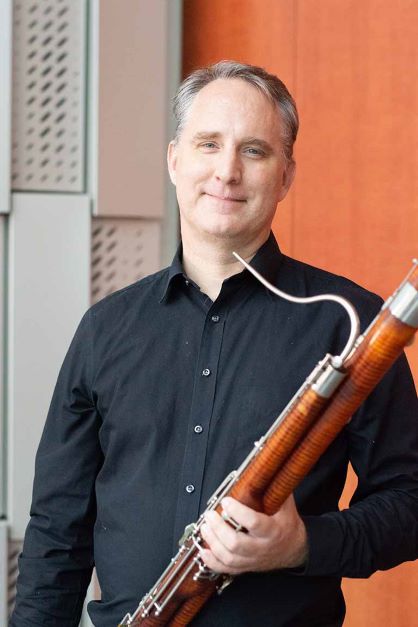Symphony Musicians Are Moving Forward With New Concerts and a Nonprofit
By JASMINA WELLINGHOFF, Editor
Back in 2014, the Musicians of the San Antonio Symphony, known as MOSAS, created an independent nonprofit that stayed dormant for a number of years. But it has now been revived to help MOSAS to return to music making. Named MOSAS Performance Fund, the organization is a 501c3 nonprofit whose mission is to present professional symphony concerts and provide educational services to the community. It is governed by a board of five musicians: Brian Petkovich (President); Peter Rubins (Vice President); James Seymour (Secretary); Karen Stiles (Treasurer), and Stephanie Westney (Parliamentarian).

Collectively, this group has a lot of experience not only as performers, but also through their service on the boards and various committees with multiple arts and educational institutions, including orchestras, dance and opera companies, as well as educational institutions.
“What we are trying to do is to get some concerts going and create a place for people to support symphonic music in San Antonio,” said Petkovich, who has been a San Antonio Symphony member since 1996. “Also, to get some money in the pockets of musicians.”
He is referring to the fact that the musicians have not been playing at their Tobin Center home for months, since they went on strike back in September, to protest the proposal that the Symphony Society of San Antonio (SSSA) presented to them after months of unsuccessful bargaining over a new contract. Known as the SSSA’s “Last, Best and Final Offer,” this offer wanted to cut the size of the orchestra from 72 full-time musicians to 42, while converting the remaining 26 players to parttime, to be engaged as needed. What’s more, all salaries were substantially reduced.
The musicians revolted, went on strike and organized public events to attract attention to their plight, repeatedly pointing out that similar orchestras in cities of comparable size are doing fine despite the limitations imposed by the pandemic. But things have not changed, and the SAS board and management eventually cancelled even their health insurance. Negotiations petered out. SSSA claimed lack of funds and the need to stabilize SAS finances. The musicians felt that no major and consistent fundraising was implemented, and offered to help in fundraising efforts, which, they suggested, should be broadened to involve more potential donors. The current SSSA envisioned annual budget for the season is $5M. “How are they going to run this orchestra on $5M? asked Petkovich rhetorically.
As a result of these unfortunate turns of events, no concerts took place at the Tobin, nor anywhere else for that matter. But musicians are musicians and they need to play, need to share beautiful music with appreciative audiences. So, a few weeks ago, they got a chance to do that under the auspices of the First Fine Arts Series sponsored by the First Baptist Church of San Antonio. Conducted by guest conductor David Cho and featuring pianist Adam Golka, the concert was a huge success.
“We were all very excited about that concert,” said Petkovitch.
He hopes to set up at least three other concerts in the upcoming months – April, May and June – “but nothing is set yet,” he noted. “There’s a real hunger to get on stage again. I was encouraged by that experience.” And he wants the public to know that the First Baptist Church event was not organized nor produced by SSSA.
Asked whether he or any other member of his board were contacted by anyone from the SAS management and board following the reactivation of the MOSAS Performance Fund, he said he hadn’t heard anything.
The San Antonio Symphony has been part of the city since 1939 when it was founded by German-Italian conductor Max Reiter. It mostly prospered for decades, had a good national reputation and kept operating even during World Wat II. For most of its history the orchestra was managed by the Symphony Society of San Antonio, but it has not been all smooth sailing. Many readers will remember the last big crisis that took place in 2017 when SSSA almost closed the entire operation. Ironically, the current chair of the board, Kathleen Weir Vale became the organization’s savior back then.
MOSAS will now need to do its own fundraising, which Petkovich called “an interesting switch.” Overall though, the situation is far from settled.
“Right now, everyone is confused about what’s happening,” noted the new nonprofit’s president. “People feel frustrated. We built this $250M concert hall but no orchestra is playing in there. The Tobin Center was built to house the symphony. The idea that you are going to have that great hall without a great symphony is ridiculous. As a community, we need to have these conversations.”
——————————————————————————————————————–
To contact or support MOSAS Performance Fund, write to info@MosasPerformanceFund.org

I quit supporting the Tobin when I saw the musicians trudging from blocks away carrying their equipment instead of being given good nearby parking. I was incensed.
I support MOSAS. Tell me how I can help. Wish I had a venue for you!
Myfe Moore
Myfe@mwmLC.com
210-213-8400
I’m with you! I’m completely boycotting the Tobin. I’m pulling for the bold new donors who actually care about performing arts in San Antonio and are willing to step up.